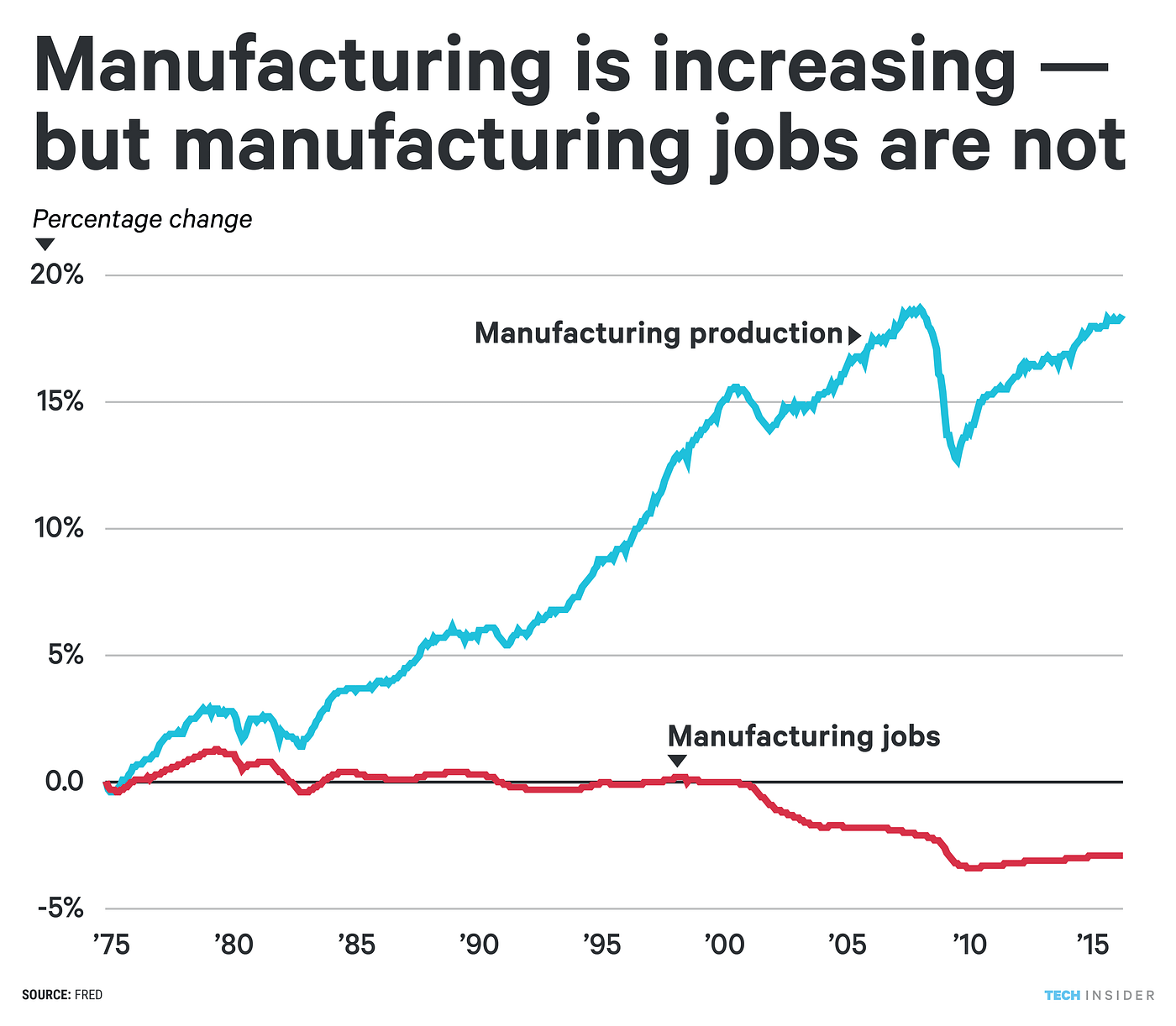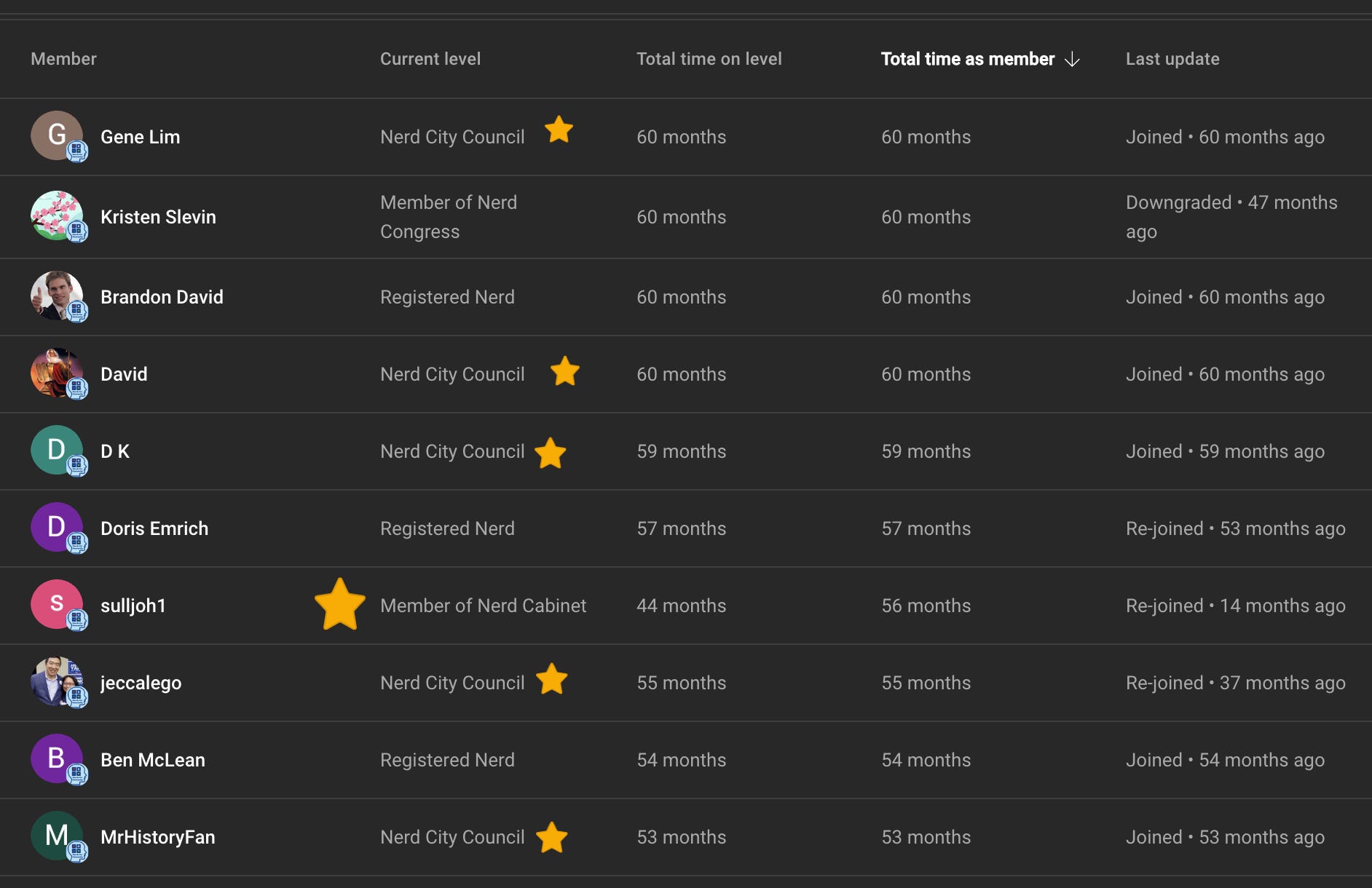The Vanishing Middle: Scott Santens on UBI, AI, and America’s Unfinished Awakening
Description
Hello nerds.
When I first started interviewing Scott Santens years ago during the Nerds for Yang era, he was one of the most relentless and articulate advocates for universal basic income (UBI) in America. Back then, it felt like the country was on the verge of something big. Andrew Yang was on the debate stage making “Freedom Dividend” a household phrase. Silicon Valley technologists were whispering about automation in the same breath as moral responsibility. Even Republican voters were entertaining the idea that direct cash transfers might be less bureaucratic and more empowering than sprawling social programs.
Fast forward to 2025, and the conversation feels quieter. The pandemic-era stimulus checks are long gone. Washington has reverted to tribal warfare. Meanwhile, AI is advancing faster than anyone—maybe even Scott and Andrew —predicted. The irony is thick: the very forces that made UBI seem like a radical idea a decade ago are now transforming entire industries before our eyes. And yet, the movement feels stuck in neutral.
So when Scott rejoined me on Nerds for Humanity this month from his new base in Washington, D.C., I wanted to know: What happened? Why did UBI lose its moment? And is there a realistic path back to the mainstream before millions of Americans get left behind?
The Move to D.C. and the Lost Moment
Scott began by explaining why he left New Orleans for D.C. a few years ago. “It just seemed that UBI was really a bigger part of the conversation,” he said. “I thought if the Democrats came in again in 2024, I could actually get some traction.”
He laughs a little when he says that now. “That didn’t end up happening,” he admitted, reflecting on how the Biden reelection froze the kind of idea competition that defined 2020. “The big problem was that Biden decided to run again, and there was no primary process. Then suddenly Kamala comes in and still no primary process. So there was no ideas competition. We really missed out on that.”
That lack of competition, Scott argues, has a ripple effect. Political movements thrive on moments of contrast, when new ideas bump up against old dogmas and voters are forced to re-evaluate assumptions. The 2020 race—with Yang, Sanders, Warren, and others pitching structural reforms—was one of those rare idea-rich moments. 2024, by comparison, was a desert.
As Scott put it bluntly: “We were close enough to taste it during the pandemic. It really felt like we were actually on the cusp of doing a monthly cash payment that could change things. But none of that happened.”
He’s not wrong. The COVID checks were, in effect, a large-scale experiment in direct income support. Poverty temporarily plummeted. Families caught their breath. Consumer demand stayed strong. And then we let it all expire.
AI Ate the Jobs While America Slept
What’s striking about this quiet period, as I noted to Scott, is that the threat he and Yang warned about—the automation of work—is no longer hypothetical. Knowledge worker jobs are being eaten by AI faster than policy debates can catch up.
“I’m a parent of two teenagers,” I told him. “Other parents are starting to wonder if a computer science degree is still the golden ticket. Should we be preparing our kids to be plumbers instead?”
Scott nodded grimly. “It’s disheartening,” he said. “Now that these impacts are here… this is the stuff that we’ve been warning about. It’s not a sudden thing, but it does seem to already be impacting the entry-level job market.”
He pointed to a convergence of pressures: corporate hiring freezes driven by uncertainty around tariffs, companies experimenting with AI productivity tools, and executives under shareholder pressure to “do more with less.” The result: stagnating headcount even in high-growth sectors.
“We don’t really need people that we likely would have if AI had not been introduced,” he said. I observed from Silicon Valley, “What we’re seeing right now is that companies can grow revenue while keeping headcount flat.”
It’s not a collapse. It’s a quiet deceleration—a slow bleed. And that’s arguably more dangerous because it doesn’t provoke a policy response. There’s no headline-grabbing “AI layoffs.” Just the invisible absence of opportunities for millions of new grads.
Even top business schools are struggling to place students. “It’s like the hardest market in years,” Scott said, and I agreed. “If we hit a recession,” he warned, “that’s when all these businesses really lean into productivity. The recession ends, and they realize they don’t need those people back.”
That scenario—automation accelerated by economic downturn—is the nightmare UBI advocates have been predicting for over a decade. Each downturn becomes a ratchet that permanently eliminates another layer of middle-class work.
The Automation Mirage
When politicians talk about “bringing manufacturing jobs back,” Scott and I get visibly frustrated. “I don’t think people realize—you don’t need that many people in those factories anymore,” I said.
He reminded me of a chart he once published showing that U.S. manufacturing output is higher than ever, even though manufacturing employment has fallen dramatically. “We’re manufacturing more than ever, we just have fewer jobs,” he said. “If we did reshoring, sure, we could manufacture even more, but jobs would continue going down.”
I brought up a U.S. tech investor who recently toured Chinese EV plants. “He said the number of BYD employees per car is something like a fifth of what it is for Ford or GM,” I told Scott. “If we build plants here, we’re not going to hire 20 people per car—we’ll hire four or five.”
Scott didn’t hesitate: “Exactly. The only way to bring it back is to minimize labor. American labor is expensive. You can’t both re-shore and keep the same job intensity.”
Then he pivoted to a deeper critique of political dishonesty. “Trump sold a lot of people false hope,” he said. “He told them, ‘Once I negotiate these trade deals, everything’s gonna be back to post–World War II full employment.’ But that’s a lie. We’ve heard that lie over and over again, even from people in the AI world. They say this will create more jobs than it displaces. Come on. We all know the realities.”
This is the paradox of modern capitalism: productivity growth has decoupled from employment growth. We make more stuff with fewer people. And our political imagination hasn’t caught up to that new reality.
From Careers to Gigs: The New Normal
Scott traced this shift back decades. “We know what happened when we displaced people from manufacturing jobs—they went lower down the ladder into lower-paying work,” he said. “You went from careers to gig labor.”
He rattled off examples that have become painfully familiar: “People now earn extra money by signing up for Uber, delivering food, DoorDashing. There’s just a transformation of what employment even means.”
In Scott’s view, the only logical response to this is UBI. “You need to make sure everyone actually gets basic income,” he said. “That helps feed demand for new jobs. If people’s incomes fall as a result of AI, demand falls. And when demand falls, the entire economy reorients.”
He pointed to a staggering statistic: “Right now, the top 10% are buying half of everything produced and sold in the U.S. It’s a very unequal consumption economy. The markets start ignoring the basic needs of people and reorient around luxury experiences.”
That imbalance, he argued, isn’t just economic—it’s political. “It leads to people getting violent. It’s key to the erosion of democracy.”
The Coming Middle-Class Awakening
If there’s any silver lining, I said, it’s that the pain is spreading up the income ladder.
“I think it’s going to affect a lot of middle-class and upper-middle-class people in a way it hasn’t before,” I said. “When Andrew talked about truck drivers losing jobs, people thought, ‘My kid’s going to college, they’ll be fine.’ Now they’re realizing maybe not.”
Scott agreed. “We just didn’t realize how fast it would hit arts, music, images, and photos. I didn’t think about that. It took me by surprise.”
I added, “When he said doctors and lawyers, it felt far away. Now you’re like—oh s**t—that’s happening right now.”
He laughed and I added more examples. “People are winning court cases using ChatGPT as their attorney. And with tools like Sora and Grok Imagine, you can generate realistic videos and images instantly. There’s no ground truth anymore.”
That last point hits hard. “You just give people a reason to doubt it,” Scott said. “You can have fake security cam footage of Sam Altman stealing something, and people will believe it. Or you can have real footage of Trump doing something, and people won’t.”
When truth itself becomes negotiable, democracy can’t function. Evidence is the oxygen of public accountability. Once it’s gone, all we have left are teams—and team loyalty.
The Tariff Fantasy
That team loyalty came up again when I told Scott about a debate I’d had with a MAGA relative in Florida. My brother argued that Trump’s tariffs would pay for his tax cuts. Scott immediately laughed. “Even assuming that were true—which it’s not—you’re still taxing the working and middle class to pay for tax cuts for the rich,” he said.
He broke it down simply: “It doesn’t make any sense to say, ‘Tariff revenue will cover it.’ Who covers the tariff revenue? It’s the consumers. And yet people believe it.”
Scott sees this as part of the broader epistemic collapse—people believing “whatever their team is saying,” no matter how illogical. “It’s impressive in some ways,” I said. “You can propose policies that hurt your base and they’
















